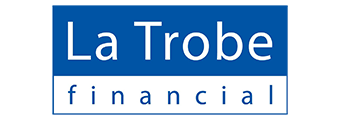A mortgage is a lot like a marriage: a long-term commitment that can have major financial implications. Okay, maybe that's a touch dramatic – but the home loan you choose is a big deal.
And if you're knee-deep in comparison tables, you might have found yourself staring at a handful of near-identical products from different lenders. It's a confusing position to be in – but one that's entirely escapable.
Here's what to consider when choosing a mortgage lender, so you end up with a provider that actually fits your needs and lifestyle.
What kind of borrower are you & what do you need from a lender?
Every borrower is different. You might be a confident tech-head eyeing a rural retreat, or a first-time buyer nervously navigating the inner-city apartment market. These borrowers will likely want very different things from a lender.
If you're unsure what you need, start by asking yourself:
-
Do you want personalised advice, or are you comfortable self-navigating?
-
Do you prefer digital convenience or in-person service?
-
Are you more rate-sensitive or feature-focused?
-
Do you want to do all your banking with the same institution?
After a bit of deep consideration, you'll likely have a gut feeling for the kind of lender that suits you. And once you do, you can take to our home loan comparison tables to work out the best lender, product, and rate available to you.
Tip: If you're not sure where to start, try writing a list of your top three non-negotiables – whether that's a low rate, local support, or digital tools.
For instance, if personalised advice and face-to-face service matter to you, consider lenders with a strong local presence. These might include the big four banks – CommBank, NAB, Westpac, and ANZ – as well as local mutual banks and credit unions.
On the other hand, if you're happy to self-navigate, prefer app-based banking, and are chasing smart home loan features (hello, offset accounts and real-time spend tracking), fintech lenders like Athena, Up, or ubank might be a good fit.
And if you want your lender to cover all your banking needs – from home loans to savings accounts and credit cards – you'll likely want to look at full-service institutions. Macquarie Bank or ING could be worth considering.
Finally, if low rates and resulting savings are your top priorities, you might want to check out some of these market-leading home loan deals:
| Lender | Home Loan | Interest Rate | Comparison Rate* | Monthly Repayment | Repayment type | Rate Type | Offset | Redraw | Ongoing Fees | Upfront Fees | Max LVR | Lump Sum Repayment | Extra Repayments | Split Loan Option | Tags | Features | Link | Compare | Promoted Product | Disclosure |
|---|---|---|---|---|---|---|---|---|---|---|---|---|---|---|---|---|---|---|---|---|
5.29% p.a. | 5.33% p.a. | $2,773 | Principal & Interest | Variable | $0 | $530 | 90% |
| Promoted | Disclosure | ||||||||||
5.19% p.a. | 5.10% p.a. | $2,742 | Principal & Interest | Variable | $0 | $0 | 80% |
| Disclosure | |||||||||||
5.39% p.a. | 5.43% p.a. | $2,805 | Principal & Interest | Variable | $0 | $530 | 90% |
| Promoted | Disclosure |
Are you eligible? Which lenders will work with (and for) you
Another factor to consider when choosing a lender is your specific situation and goals. Many lenders specialise in or exclude certain borrowers – say, those who are self-employed, purchasing small or large properties, or need a helping hand to get onto the property ladder.
Here are some situations in which you might be best to approach a specialist lender and some low-rate products that could suit your needs:
Self-employed or have an irregular income stream?
If you work for yourself, don't receive regular PAYG income, or don't have as much proof of your livelihood as other borrowers, you might want to consider a lender that specialises in borrowers in similar circumstances.
Many of the big four banks and plenty of other lenders have provisions in place for self-employed borrowers.
You might also consider applying for a low doc home loan. Low doc home loans require less documentation than standard mortgages. Thus, they can act as a gateway to homeownership for those who can't prove their income as easily as an employee could.
Here are some of the most competitive low doc mortgage deals available now:
Lender Home Loan Interest Rate Comparison Rate* Monthly Repayment Repayment type Rate Type Offset Redraw Ongoing Fees Upfront Fees Max LVR Lump Sum Repayment Extra Repayments Split Loan Option Tags Features Link Compare Promoted Product Disclosure
Want to buy a small apartment, acreage, or vacant land?
Some lenders have limits on the size and type of property they'll accept as security for a home loan.
Many won't accept apartments with less than 50 square metres of living space or properties spanning more than two hectares, as these can be harder to offload in the case a borrower defaults.
For similar reasons, it can be more challenging to find a home loan for vacant land. If you're keen to break ground in the near-term, it could be worth turning to a construction loan. If you want to buy land now and wait while before beginning your build, a land loan might be down your alley.
Here are some of the market's best construction loans:
Lender Home Loan Interest Rate Comparison Rate* Monthly Repayment Repayment type Rate Type Offset Redraw Ongoing Fees Upfront Fees Max LVR Lump Sum Repayment Extra Repayments Split Loan Option Tags Features Link Compare Promoted Product Disclosure
Keen to use a guarantor or government scheme?
Buying your first home can be challenging. That's why many first time purchasers turn to a guarantor or the Home Guarantee Scheme (HGS) for help.
However, not all lenders will allow for a guarantor. A guarantor is a person (generally a family member) who puts up an asset of theirs (generally a property) as security for a mortgage. This can help first home buyers dodge lenders mortgage insurance (LMI) and potentially secure a more competitive home loan. If you're planning to use a guarantor, make sure your preferred lender allows you to.
Likewise, only a few dozen provide the First Home Guarantee, Regional First Home Guarantee, or the Family Home Guarantee. The three guarantees offered under the HGS also help eligible borrowers dodge LMI, with the government essentially acting as a guarantor for a portion of their mortgage. If you're planning to use the scheme, here's an up-to-date list of lenders offering it.
Buying through a Self-Managed Super Fund (SMSF)?
Not all lenders offer SMSF loans, and those that do often apply stricter lending criteria. These loans typically require higher deposits (often 20% to 30%) and can involve more complex legal structures.
If you're purchasing property via your super fund, you'll want to work with lenders who specialise in SMSF lending, like:
Check out these low-rate SMSF loan options:
Lender Home Loan Interest Rate Comparison Rate* Monthly Repayment Repayment type Rate Type Offset Redraw Ongoing Fees Upfront Fees Max LVR Lump Sum Repayment Extra Repayments Split Loan Option Tags Features Link Compare Promoted Product Disclosure
Promoted
Disclosure
Disclosure
Disclosure
Banks, credit unions, and non-bank lenders: Oh my!
There are dozens of lenders in Australia – from the big four banks to mutuals and credit unions to non-bank financial institutions.
Each has pros and cons, so don't feel limited to the major players. Sometimes smaller or lesser-known lenders offer sharper rates or more personalised service.
Importantly, larger banks aren't necessarily safer than smaller market players or non-bank lenders, but can offer notably higher rates. Shopping around could save a borrower tens of thousands over the life of their home loan.
Here's a brief breakdown of how each type of lender differs:
Big four banks and major brands
Think CommBank, Westpac, NAB, and ANZ – plus their subsidiaries like St George, Bankwest, and Bank of Melbourne – as well as major brands such as Macquarie Bank and AMP.
These lenders offer a wide range of products, physical branches, and often bundle other services like credit cards, savings accounts, and insurance.
They can suit borrowers who value face-to-face service, brand recognition, or full-service banking. But convenience and trust can come at a price – rates and fees are often higher than those of smaller lenders.
Mutual banks and credit unions
Owned by their members (not shareholders), mutual banks and credit unions often focus on community values and customer service. They may offer more personalised lending experiences and be more flexible with loan approvals, especially for those with unique financial situations.
While they might not have the slickest apps or the biggest product suites, mutuals can offer competitive rates and a more human touch.
Non-bank lenders
Non-banks lenders like loans.com.au, Pepper Money, and Firstmac are financial institutions that lend money for the likes of home loans and car loans. Unlike banks, they don't take deposits.
Non-banks are regulated by ASIC (rather than APRA). Because of this, they can often target borrowers who fall outside the typical lending boxes imposed by APRA.
Thus, they tend to be more flexible with serviceability requirements, credit history, income streams, and property types, and they commonly offer lower rates due to lower overheads. However, they might not offer bundled banking products or in-person customer service options.
Feeling overwhelmed? A mortgage broker could help
Choosing the right lender can feel overwhelming – especially when you're juggling rates, features, eligibility criteria, and fine print. But the good news is, you don't have to figure it all out on your own.
If you're confident doing your own research, you could find the ideal product for your situation at a great price. If you're less sure, a mortgage broker can offer personalised advice and help match you with lenders that suit your needs.
Most brokers don't charge for their services – they're typically paid by the lender. Just keep in mind that brokers only have access to a set panel of lenders, so you won't be choosing from every option on the market.
Image by Field Cottage on Unsplash
Collections: Home Loan Application Home Loan Lender














Share